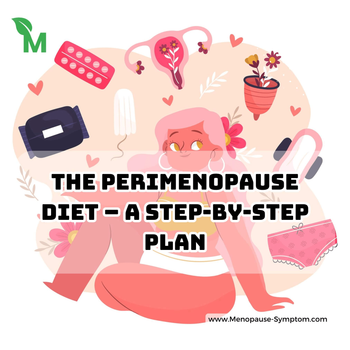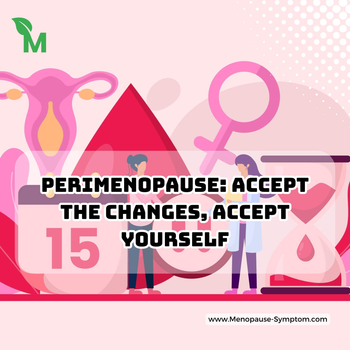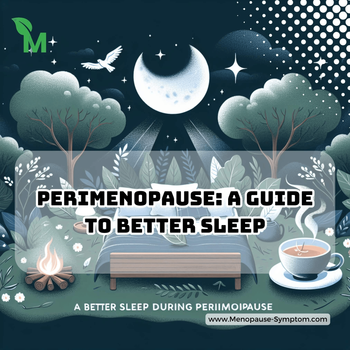However, staying healthy during this stage is completely possible and has many benefits for daily life. Exercise is one of the effective ways to take care of perimenopause health that many women can apply.
What is perimenopause?
Perimenopause is the stage that occurs before menopause. This stage usually falls on women between the ages of 45 and 55. It is also known as the menopausal transition stage. During this stage, the level of estrogen, a female hormone, begins to decrease, causing irregular menstrual cycles and then you will stop having periods completely.
During the final stages of perimenopause, a woman's body produces less and less estrogen. This stage lasts for at least a few months and up to 4 years.
Some symptoms:
· Irregular periods: Irregular periods are the most noticeable symptom of perimenopause. During this stage, you may experience problems such as: difficulty determining ovulation, periods becoming longer or shorter, changes in the amount of menstrual blood, which can be very little or very much, or even missing periods for a few cycles.
· Hot flashes: Hot flashes are sudden feelings of heat, usually around the face and upper body. During a hot flash, your face and chest may also turn red and you may sweat a lot. Some women also experience a rapid heartbeat. When a hot flash passes, you may feel chilled.
· Slow metabolism and weight gain: This is because during menopause, estrogen levels decrease, causing fat storage to shift from the hips and thighs to the abdomen. When estrogen levels decrease, the body tends to store more fat and slows down the metabolism's ability to burn fat. Another cause of weight gain is that as we age, we tend to exercise less and eat more.
Benefits of Exercise During Perimenopause
As women enter perimenopause, they may experience many unpleasant symptoms such as hot flashes, sleep disturbances, and mood swings. Regular exercise not only improves physical health but also has a positive impact on mental health. Here are some of the clear benefits of exercise during perimenopause:
· Reduces perimenopause symptoms: Research shows that regular exercise can improve health and help reduce symptoms such as hot flashes and night sweats.
· Strengthen bone health: During menopause, osteoporosis can increase due to a decrease in estrogen. Exercise helps increase bone density, reducing the risk of fractures.
· Improve mood: Regular exercise stimulates the body to produce endorphins - hormones that improve feelings and reduce stress.
· Control weight: Hormonal changes can increase the ability to accumulate fat. Exercise helps control weight effectively, maintain a healthy figure.
· Improve cardiovascular health: Exercise helps improve blood circulation and strengthen cardiovascular health, which is very important during perimenopause and menopause.
Types of exercises suitable for perimenopause
Choosing the right exercise will make it easier for women to maintain an exercise routine. Here are some types of exercise that you can apply:
· Walking: This is an easy sport to do and suitable for most people. Just spend 30 minutes a day walking briskly, you will clearly feel the changes in health benefits.
· Swimming: Swimming not only helps reduce stress but also has a positive effect on the muscles without putting pressure on the joints. This is the perfect choice for women with bone and joint problems.
· Aerobics: Aerobic exercises not only bring a sense of fun but also help improve cardiovascular health. These exercises can be done in groups, helping to motivate women.
· Yoga: Yoga helps improve flexibility, balance and endurance. In addition, yoga is also very good for the mind, helping to regulate emotions during perimenopause.
· Strength training: Using weights to exercise will help strengthen bones and muscles, fighting against age-related decline.
Tips for Maintaining an Exercise Schedule
It is important to plan your exercise routine during perimenopause. Here are some tips to help you maintain your exercise routine:
· Build a routine: Choose a time of day that works for you. Try to exercise at the same time each day to create a routine for your body.
· Join a group exercise: Look for exercise classes or exercise groups to motivate you to exercise. Group exercise, you will get support from experienced people, which can help you reduce the risk of exercise injuries.
· To avoid boredom, you can regularly change your exercises, try different activities.
· Set realistic goals: Set small, achievable goals to track your progress.
· Listen to your body: Pay attention to your body and don't push yourself if you feel uncomfortable. It is completely normal to reduce the intensity or change the type of exercise when necessary.
Conclusion
Health training during perimenopause and menopause is extremely important, affecting your quality of life greatly. Exercise not only helps you improve your physical health but also improves your mental health. This is the time to explore new activities, reinforce healthy habits and avoid health risks.
Remember that health care is not just a task but should also become a part of your daily lifestyle. Exercise regularly and persistently, you will definitely feel positive changes not only in your physical health but also in your mental health. Wishing you all a healthy and confident perimenopause and menopause!
Source: Team MPS compiled, analyzed and wrote. Please dont reup without source. Many thanks.

The Perimenopause Diet – A Step-By-Step Plan
09.02.2024
Perimenopause is an important journey in every woman's life. It is a time of transition and a time when your body undergoes many hormonal changes.

Perimenopause: Accept The Changes, Accept Yourself
Invalid Date
Perimenopause is a natural stage in every woman's life, taking place through physiological and psychological changes. It is a special journey, where each woman is encouraged to accept the changes to move forward to a new and meaningful life.

Perimenopause: A Guide To Better Sleep
Invalid Date
Perimenopause is an important transitional stage in a woman's life that usually begins after the age of 40. This is the stage when a woman's body experiences many changes related to psychology and physiology, as well as health.
